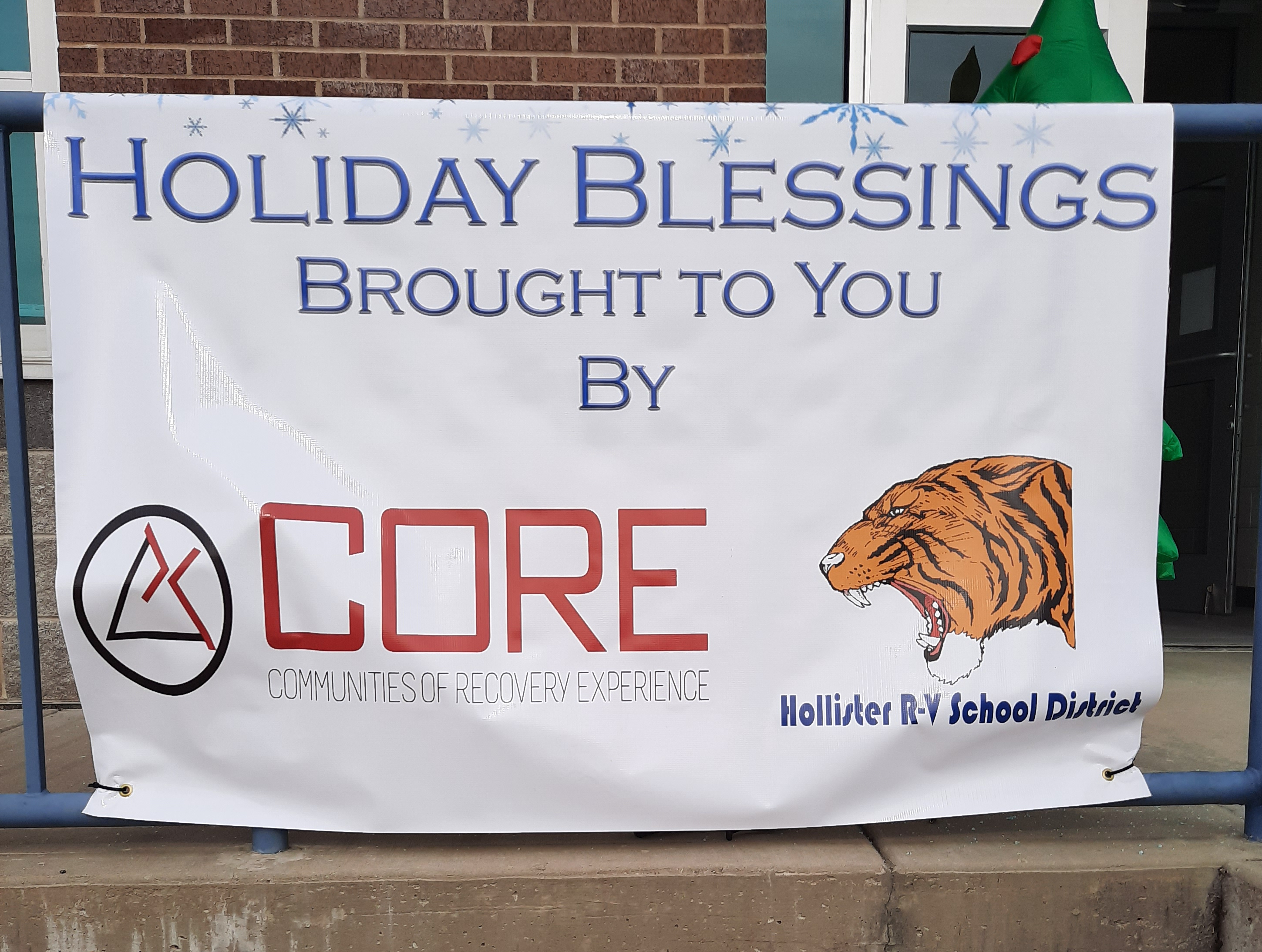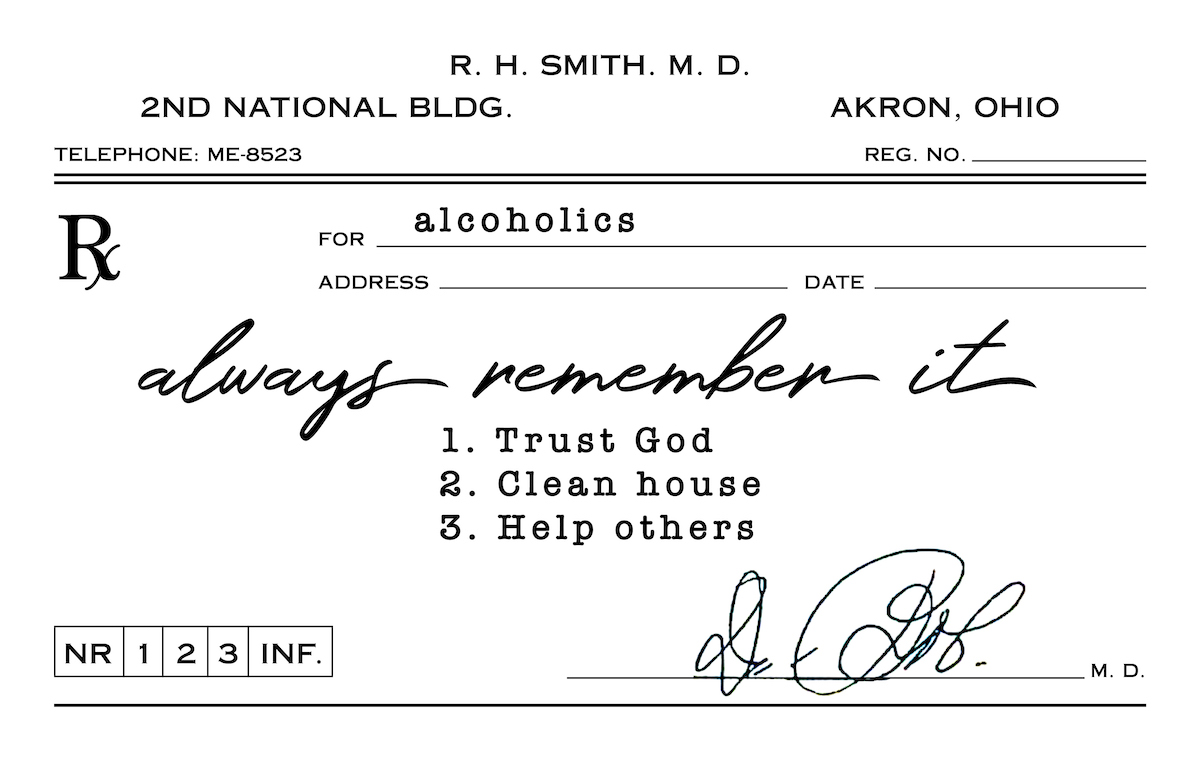Recovery’s Best Kept Secret: God
If you live in Branson for any length of time, at some point a tourist may ask about the city’s best kept secret. It might happen at a local retail store or restaurant, but more likely it will take place at the filling station. The typical encounter begins when you spy from the corner of your eye a car with out-of-state plates rolling up to the gas pump next to you. The occupant emerges and you both say hello. Pleasantries are exchanged about the weather or recent big game. You ask when they got here and how long they plan to stay, and the topic of conversation naturally steers to Branson’s best restaurants and highlights. You hear the familiar questions: “What’s the best show?” “Where’s the best place to eat?” and of course “What’s Branson’s best kept secret?”
These are common questions for travel destinations, for obvious reasons. If we are traveling, once we arrive to our destination, we don’t want to miss out on what’s important. After all, we might not be back for a long time, or ever again. These aren’t trivial questions either even though some might mistake them so. Moreover, any Bransoner worth their salt has a ready answer to them. Our intuition tells us the tourist is looking for something grand, even compelling. They want something real and extraordinary. After all, by definition a best kept secret is some significant fact that isn’t appreciated by everybody. The tourist is asking because we live here. They trust our opinion. If anybody knows, it’s us. We at CORE who live in Branson have been asked these very questions by tourists.
CORE is about recovery from substance abuse. That’s what we do. It weighs on our minds and our hearts practically every hour of every day. Our program is twenty-five years old. We’ve helped thousands of people. If anybody should know about recovery issues, it’s us. Not surprisingly, in a variety of contexts, people often ask us the same sorts of questions that tourists ask – except – instead of asking about the best show, they ask about recovery from drugs and alcohol. They might be asking for themselves, or a friend or relative. It may be at one of our centers or at a social or business event. But we naturally anticipate these familiar questions like “What’s the key to recovery?” “How do I quit alcohol?” “What’s the secret to getting off pills?”
As it turns out, there indeed is a “best kept secret” about recovery, and we are happy to share it. In today’s $42 billion per year addiction industry, it has been often glossed over, warped, and sometimes denied for a variety of political, economic, and social reasons that really have nothing to do with recovery itself. The best kept secret about recovery, to which every suffering addict and alcoholic should take heed, is God.
Too often we hear of certain 12 Step programs, run by the very individuals who should be guardians of the Big Book, claiming that God is optional. Yet even a cursory review of the book reveals the opposite. It was written by Bill Wilson, who was convinced of the “necessity of belief in and dependence upon God.”1
Bill himself was first approached by an alcoholic friend who previously had been pronounced incurable. “His human will had failed,” Bill writes, but “my friend sat before me, and he made the pointblank declaration that God had done for him what he could not do for himself.”2 His friend seemingly had been raised from the dead. Bill took note because he personally knew this man. He saw the hopeless extent of his friend’s condition and knew the power to recover could not have originated within him.3 Moreover, Bill also wrote about his most desperate moment, when he finally followed his friend’s wise advice:
I humbly offered myself to God, as I then I understood Him, to do with me as He would. I placed myself unreservedly under His care and direction.4
He further adds, “I have not had a drink since” to punctuate the significance of the event.
The central theme of the Big Book’s 12 Steps, six of which reference God, is summarized in a single prefacing sentence, “There is One who has all power–that One is God. May you find Him now!”5
The Big Book itself flatly says that God is what it “is about.”6 “Its main object is to enable you to find a Power greater that yourself which will solve your problem. That means . . . that we are going to talk about God.”7 And indeed, one of its most pertinent ideas is that “probably no human power could have relieved our alcoholism,” but that “God could and would if he were sought.“8
The foregoing seems clear enough to us, but people wanting to minimize God’s role in recovery point to Big Book phrases such as “Higher Power”9 and “Power greater than ourselves.”10 These don’t ignore God at all. They simply acknowledge the fact that if we ask a hundred people who God is, we invariably get a hundred different answers. The 12 Steps don’t try to force anybody’s particular conception of God on members. AA has never been affiliated with any organized religion or tried to enforce rigid conceptions about God upon its members. The Big Book is careful to note that our relationship is properly with God as we – not somebody else – understand Him.
Unfortunately, some have taken these “higher power” references to the extreme and run with them causing all sorts of mischief. They even tell addicts and alcoholics who are new to recovery that one’s higher power can be virtually anything – a door knob, the group, or even a ham sandwich. Even some of the general service’s approved literature published after the Big Book appears to acquiesce to some of these ideas.
We can’t take them seriously. Who really believes that a ham sandwich is the Spirit of the Universe who keeps them clean and sober?11 Who wants to turn their will and their life over to the care of a doorknob?12 Who seeks to improve conscious contact with their home group by praying to it?13 There are inherent limitations on how far the idea of a higher power can be stretched and still do the 12 Steps. There’s really no justification for warping it any further than to what the Big Book plainly refers: God as we understand him.14
Our intent here is to be perfectly honest with the reader. Our clients come to us for real answers and help. They’ve been to therapists, counselors and support groups before. They’ve tried things like cognitive behavioral therapy, prescription drugs, physical exercise, finding new social groups, and many other recovery strategies offered by America’s billion dollar industry. If any of these things had been sufficient to overcome their addiction and alcoholism, they would have recovered long before finding us. Notwithstanding, they come to us because they are beyond human aid, powerless. Their options are whittled down to one. They are “100% hopeless, apart from divine help.”15
It is for addicts and alcoholics that the value of the 12 Steps really shines. This is as true today as it was eighty-years ago when the Big Book was first published. We have seen this proven over and over again. God never fails.
The Big Book’s promises always materialize for people who work the program. We know freedom, happiness, and peace. Feelings of uselessness and self-pity disappear. We lose interest in selfish things and gain interest in others. Self-seeking slips away. We no longer regret the past but rather see how our experience can benefit others. Our whole attitude and outlook upon life changes, too. Fear of people and of economic insecurity leave us. We intuitively know how to handle situations which used to baffle us.
In short, we realize that God is doing for us what we could not do for ourselves.16 This is the miracle of the 12 Steps. Our recovery comes from God.



